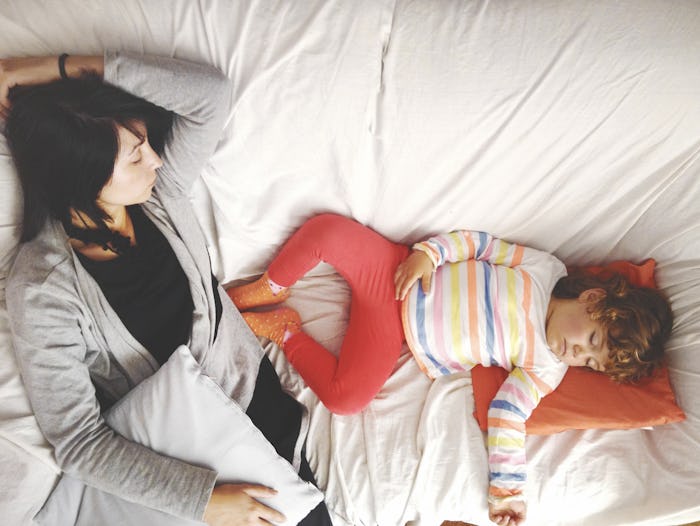“How are you holding up?”
When I received this text from an old friend, I found myself, as many of us have since the arrival of COVID-19, searching for a response somewhere between “honestly? Miserable” and the once common-place, but now obviously dishonest, “fine.”
I opted for somewhat filtered honesty, “We’re doing OK, I’m struggling with distance learning and everyone being cooped up all day, and it’s killing me that this is robbing Little Bit of her kindergarten year, but we’re adjusting to our new normal. How are you doing?”
The iMessage ellipses appeared and disappeared as her response came slow and uncertain. “I'm sure that’s sad, but at least your kids are healthy! Maybe you could try doing some crafts? And I’m good. I'm just doing my best to ignore people's trivial complaints.”
I blinked. Her response felt like a rebuke for something I hadn’t meant to do. Had I been complaining? I had only meant to respond honestly, but these days, being honest and complaining look a lot alike. So maybe I had complained, but also, maybe moms should be allowed to complain without redirection right now.
My immediate reaction to my friend's text included thinking a lot of very unkind thoughts about her as a person. Like, “I’ve been a mother for nine years, I know about crafts, *sshole!” and “of course you don’t get it, you don’t have any kids!” But as my anger subsided, I realized I didn’t feel offended, I simply felt hurt.
I unpacked what her words meant to me. I read her reminder that “at least my kids are healthy” as a reprimand for sending a text that hadn’t demonstrated enough gratitude for my children’s lives.
If I were to perpetually demonstrate my gratitude for my children’s health and ongoing lives, I would spend my life on my knees, tears streaming down my cheeks, screaming at the sky, 'Thank you, thank you, thank you!'
When I told my friend how I read her text, she told me that wasn't how she meant it. I’m sure there was a level of neuroticism in my interpretation, but also, the implication underlying the constant pressure to be positive is something most mothers are familiar with, and in the wake of our lives being turned upside down, it’s something that I am done tolerating.
For the record, if I were to perpetually demonstrate my gratitude for my children’s health and ongoing lives, I would spend my life on my knees, tears streaming down my cheeks, screaming at the sky, “Thank you, thank you, thank you!” But that’s unreasonable. Instead I have to parent. I have to continue to break up my children’s fights, kiss their owwies, and admire their creativity (because, of course, we do crafts!), install yet another distance learning app, give them hugs even as I explain for the 168th time, through my own tears, why we can’t visit their grandparents. I have to make them dinner, make them bathe, clean up a house that hasn’t had a break from its inhabitants for months.
I know the drill. At least I can give them hugs. At least I have a house to clean. At least we have food to make for dinner. But no amount of reframing my struggles will make them any less hard or unprecedented. And sometimes moms need the opportunity stop the spin and just complain. And by “complain”, I mean the ability to respond honestly to a friend’s “how are you doing?” without judgment.
I understand that my "hard” is another person’s trivial, and my insistence on complaining about my trivial struggles may come across as insensitive to those who have it much worse. But in relationships where we ask “how are you?” with the hopes of receiving a sincere response, I am neither minimizing anyone else’s struggles or exaggerating my own when I give one.
I understand my friend’s impulse to spin my negativity into positivity. Often we hear our loved one’s complaints as requests for help.
I am a white, non-essential but financially secure suburbanite with three healthy children. I claim no monopoly on suffering. There are parents on the frontlines of this pandemic, who, to protect their children from exposure, have had to send their children away without knowing when they’ll be able to safely return. There are parents who have lost their life partners and co-parents to this pandemic, there are parents who have lost their children. I could have it so much worse. The paradoxically hopeful and cruel nature of the human experience is that so could they.
While this truth should incite sensitivity, it shouldn’t oblige us to repress our struggles in relationships where we ought to feel safe.
But I understand my friend’s impulse to spin my negativity into positivity. Often we hear our loved one’s complaints as requests for help, and if they aren’t issues we can fix physically, our response is to offer them advice instead. But while our desire to give our friends assistance is beautiful, I think most of us would admit that’s rarely the response we’d like ourselves.
So, during one of the most universally stressful periods in recent memory, allow me to suggest another gift we can give one another: let’s just listen. Let’s trust one another to find our own silver linings, and instead, offer our shoulders to catch each other’s tears.
Because while I can't speak for mothers everywhere, there are a few things almost all of us can agree on: we absolutely love our kids and we don't need to reminders to be grateful they exist. But because the entirety of our lives are devoted to their service, sometimes we just need some space to complain about it.
